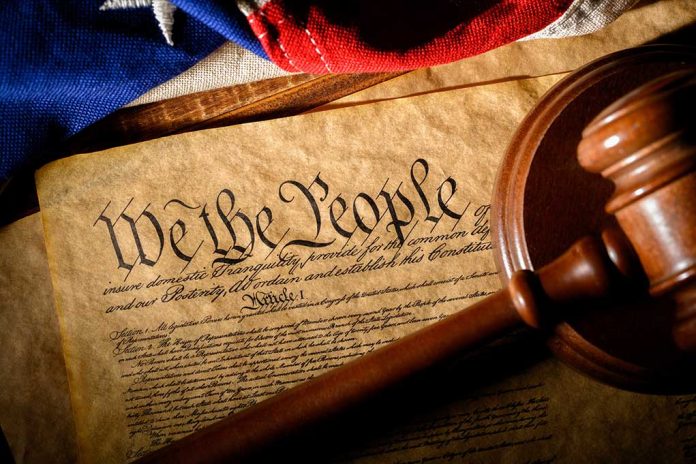
The Supreme Court’s decision to reject Minnesota’s appeal against nullifying the ban on gun-carry permits for young adults has sparked a significant assessment of Second Amendment rights.
Key Takeaways
- The Supreme Court rejected Minnesota’s appeal regarding gun-carry permits for young adults, underlying a constitutional review of the Second Amendment.
- No justice dissented in the Minnesota case, indicating a united stance.
- The Court’s reluctance to hear the case reflects an avoidance to further evaluate the right to “keep and bear arms.”
- Previous rulings have shown inconsistency in federal courts regarding age restrictions on gun ownership.
- Gun control advocates argue high gun-related deaths among young adults justify the need for age restrictions.
Supreme Court Leaves Lower Court Ruling Intact
In a decision that could set a significant legal precedent, the Supreme Court declined to hear Minnesota’s appeal to enforce age-based restrictions on gun-carry permits. This move leaves the 8th U.S. Circuit Court of Appeals’ ruling intact, which struck down a Minnesota law that prohibited the issuance of gun-carry permits to young adults, stating it conflicted with the Second Amendment.
This legal action suggests an emerging judicial trend toward critical evaluation of firearm regulations, often questioning the constitutionality of age-specific restrictions on gun ownership.
Judicial Sentiments and Broader Implications
The unanimous agreement among justices not to dissent in the Minnesota case underscores a broader hesitation to engage further in examining gun rights profoundly. This comes after a significant 2022 Supreme Court ruling that expanded gun rights, followed by the 2024 decision to uphold federal gun control laws concerning domestic violence victims. Despite this history, the court remains cautious in selecting cases that delve into the nuances of the Second Amendment.
The Role of Federal Courts and Varied Rulings
Federal courts have exhibited variability in their rulings concerning age-related restrictions on firearms. In January, a federal appeals court in New Orleans struck down a law mandating that individuals be 21 to purchase handguns. In contrast, a federal judge in Hawaii upheld a ban on gun possession for those under 21 in February. Such inconsistencies highlight the ongoing legal battle over age-based firearm regulation, reflecting the nation’s divided stance on gun control and rights.
Our win in our Worth v. Jacobson challenge to Minnesota’s 18-20 carry ban has been cemented.
Fuck your gun bans! pic.twitter.com/knpNDcax2k
— Firearms Policy Coalition (@gunpolicy) April 21, 2025
Public Safety vs. Constitutional Rights
The debate over age restrictions on gun permits is fueled by contrasting arguments of public safety and constitutional rights. Advocates for gun control point to the high incidence of gun-related deaths among 18-to-20-year-olds, arguing for the necessity of such laws. Conversely, gun rights supporters highlight the constitutional language of the Second Amendment, which lacks age specificity. As more states examine similar restrictions, the ramifications of the Supreme Court’s decision in Minnesota could potentially influence future legislative and judicial outcomes.
Sources:
- Supreme Court won’t revive Minnesota ban on gun-carry permits for young adults | AP News
- Supreme Court declines to weigh gun ban on young adults in Minnesota
- Supreme Court rejects Minnesota effort to revive ban on young adults from carrying guns
- Supreme Court justices won’t revive a Minnesota ban on gun-carry permits for young adults – Washington Times



